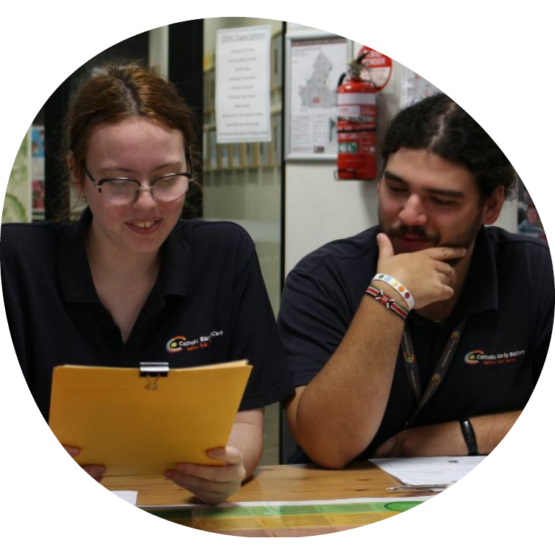
Prioritising the safety and wellbeing of children
This Child Protection Week, Catholic Early EdCare is reaffirming its commitment to safeguarding children and young people.
Human beings are social creatures. Our relationships and connections with others are critically important, and impact on every aspect of our lives.
Human beings are social creatures. Our relationships and connections with others are critically important, and impact on every aspect of our lives. We like to surround ourselves with family and friends, to share our feelings, emotions and stories with each other. We seek feelings of safety in our connection with others.
This drive to connect with others starts when we are babies, so it’s important that as parents, you equip your child with the social skills they need to relate to others and build strong relationships. More than just the ability to ‘make friends’, these social skills help children understand themselves and others, express themselves, communicate, negotiate and resolve conflict.
Interestingly, when we talk about children’s development, the focus is often on skills such as language, motor skills and their physical growth. But the development of social skills is equally as important.
In this article, we look at how your child will develop social skills in the first five years of their life, and how you can ensure they develop the social skills they need.
Foster relationships with a wide network
The best way to ensure your child develops the social skills they need is to allow them to regularly spend time with a range of people. From immediate family, to extended family, friends, children at child care and early childhood educators, these interactions are invaluable.
Through these relationships, children will learn important skills like identifying and expressing emotions, cooperation, conflict resolution and kindness. These diverse connections also help children develop a sense of who they are, and where they fit into their community.
Demonstrate positive relationships
From a young age, your child will be observing and imitating you. This is often most obvious through their use of language, but it’s also true of your interactions with others. Consider what your child is observing through your relationships with others and demonstrate positive behaviour.
Another way to demonstrate positive behaviour is to set aside time each week to play with your child as more of a friend than parent, allowing you to demonstrate things like sharing and cooperation.
At Catholic Early EdCare, our educators actively demonstrate positive relationships for children every day. This helps children to explore how friendships are made with both adults and other children, as well as learn about kindness, empathy and how to navigate group settings. Our centres also actively encourage mixed-age play, with open outdoor spaces for children to play together and form more diverse relationships.
Talk about feelings and emotions
As much as modelling positive behaviour is important, talking about it is also important.
Help children explore their feelings, and express themselves. Tell your child that you love them, and how you’re feeling, so that they learn it’s healthy to express emotion.
In a child care setting, the best educators will talk about feelings and emotions with children, encouraging them to express their feelings to staff and peers. This is also really positive in helping children to manage conflict and competition.
Enrol your child in child care
While you may not want to send your child to child care every day, enrolling them in a long day care program or kindergarten even just one or two days per week gives them the opportunity to make positive connections with other children and early childhood educators. In this setting away from the home, they will be exposed to different opportunities to learn through their positive connections with others, including their peers and friends.
Remember that while not all children will develop their social skills at the same pace, they are developing these skills from birth. Social and emotional development is a critical part of their overall development. Developing these skills will help your child to get along with others, and recognise and express their emotions. Social development is also linked to increased confidence, problem solving abilities and understanding the needs of others.
By implementing these simple strategies you can ensure your child develops the social skills they need for life.
At Catholic Early EdCare, we help your child to grow socially every day. The early years of education and care are the foundation for every child’s future. To find out more about how your child will grow socially in our care, visit our website.